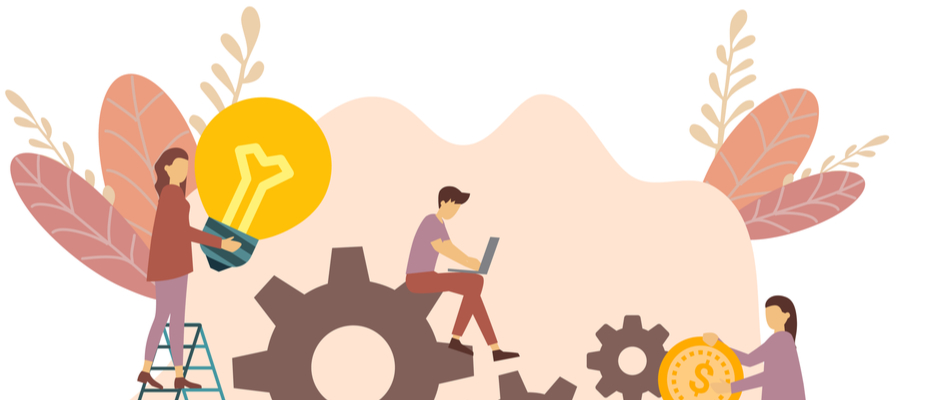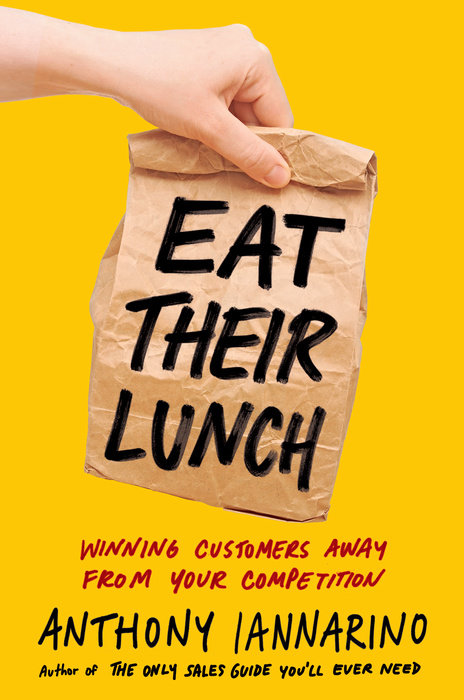The Gist:
- Sales is a competition, a contest with a single winner and multiple losers.
- In a zero-sum game, you need to create a competitive advantage.
- How you sell—not what you sell or who you work for—is your most important competitive advantage.
One of your primary outcomes should be creating a strong preference for your client to buy from you. You want to play fair while creating an unfair advantage. Or better still, several unfair advantages.
Most things that provide an unfair advantage are within your control, including some elements of your overall approach to sales. The more unfair advantages you can stack up, the greater the odds that your prospective client will decide to buy from you.


Greater Mindshare
The most critical way to create an unfair advantage is capturing mindshare. Your wallet share is never going to exceed your mindshare. Imagine that your client is looking at their world through a cloudy lens. The salesperson who can swap out that inadequate lens for one that provides a crystal-clear view of the world creates an unfair advantage.
Your clients will easily prefer the salesperson who best serves them in understanding their world and making decisions based on the context around them. There is nothing unfair about enabling better decision-making! This is especially true when you’re competing against someone who believes that all they need to do is identify a problem and insert their solution.
Anyone who is oblivious that B2B sales are mainly about change management is playing the wrong game. You may want to sit with this idea and ask yourself exactly what game you are playing. For example, you might excel at the legacy sales game but still lose to a competitor who is playing a modern sales game.
More Time
After mindshare, there may be no more significant advantage than time. You want your competitor to be limited to forty-five minutes while you command seventy-five minutes. There is a tendency for busy people (and people who pretend to be busy) to rush conversations, including meaningful discussions about their future.
Spending more time with your prospective client gives you the opportunity to create greater value for them in the sales conversation, by fully exploring all the topics you need to cover to help them improve their results. Conversely, having less time is a tremendous disadvantage, limiting how much you can cover. When a salesperson has more opportunities to deepen their client’s understanding while improving their ability to help the client with the better outcomes they need, they have an unfair advantage.
To craft this advantage, two things are necessary. First, your conversation needs to create value for your contacts. Second, you need to ask for more time, proposing an agenda that promises even greater value. You have little to worry about when executing this strategy, as most salespeople won’t ask for the additional time to provide them with an advantage.

Greater Access to People
The strategy of capturing mindshare and more time come together in this third strategy: gaining access to additional people on your client’s teams. For a very long time, we have trained salespeople to start the conversation with “the decision-maker,” an approach that provides a partial truth. To win a deal, you are going to need someone who can sign a contract. However, believing that is the only person you need to win a deal is a flawed strategy, one that exposes you to greater risk.
Most big decisions are going to include stakeholders whose business cards do not say “decision-maker.” The nature of consensus is that there is not a single decision-maker; instead, there are decision-makers. You may also find that “decision-shapers” have more influence on your potential deal. Influence is an invisible force, one built on a different type of authority. A subject matter expert may have greater authority than the decision-maker. A group of people who decide their company has overlooked their needs often possess a form of moral authority, something they may use to block a decision they believe is unfavorable to them.
By gaining access to the people who will be impacted by the change you are helping your client make, you improve your ability to help them build something that they can support and execute. When you have access to individuals and groups and your competitor does not, you have an unfair advantage.


Additional Information
The last of our four strategies here is acquiring information not known to your competition. Most discovery work gathers surface-level information about problems without any true exploration—and almost none of it requires actual data. You want to be quantitative and analytical at the same time.
Asking questions that your competitor doesn’t ask provides you with an unfair advantage by generating information or insight they lack. What’s equally important is asking for information that will help you better serve your client. You might need a report or the raw data or some test results to inform your approach. It has always been true that people with more and better information have a distinct advantage.
You can never benefit from information that is unknown to you. However, you can create a competitive advantage by asking for information that will move your client towards the better results they need you to secure.
Most salespeople sell as if their company and their solution are their advantages. Unfortunately, that belief is false, and it is one of the ways sales organizations have commoditized the sales call. When the only difference between one salesperson and their competitor is the logo on their slide deck and the color of their eyes, there is no reason to prefer one over the other. The unfair advantage you seek is found not in what you sell or who employs you to do so. Instead, you find your edge in how much value you create in the sales conversation.
Do Good Work:
- What do you do to capture mindshare that provides you an advantage?
- What can you do to earn the right to more time than your competitors?
- What advantages made the difference in past deals you’ve won?

Essential Reading!
Get my 3rd book: Eat Their Lunch
"The first ever playbook for B2B salespeople on how to win clients and customers who are already being serviced by your competition."
Buy Now







.jpg?width=768&height=994&name=salescall-planner-ebook-v3-1-cover%20(1).jpg)


